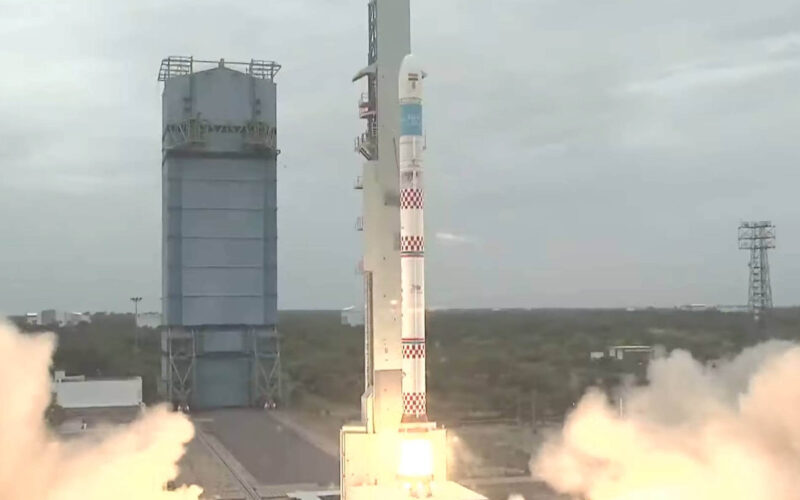Despite initially claiming success, the Indian Space Research Organisation (ISRO) has announced that the first launch of the country’s new space rocket ended in failure.
The Small Satellite Launch Vehicle (SSLV), which was launched on August 6, 2022, from Satish Dhawan Space Centre, failed to deliver its payload to a stable orbit.
The initial steps of the launch were successful, as the livestream of the event shows, with the rocket lifting off and performing separations of the first two stages.
This prompted ISRO to announce that the launch was successful, albeit noting that some data was lost during the terminal stage of the flight.
Several hours later the ISRO Twitter account announced that the launch was ultimately unsuccessful, because the third stage of the rocket failed to deliver the payload – two small satellites – to a stable 356 km circular orbit. They were delivered to an elliptical 356×76 km orbit, and are no longer usable.
According to the tweet, “failure of a logic to identify a sensor failure” caused the deviation. According to SpaceNews.com, the satellites likely reentered the atmosphere over the Pacific Ocean.
(1/2) SSLV-D1/EOS-02 Mission update: SSLV-D1 placed the satellites into 356 km x 76 km elliptical orbit instead of 356 km circular orbit. Satellites are no longer usable. Issue is reasonably identified. Failure of a logic to identify a sensor failure and go for a salvage action
— ISRO (@isro) August 7, 2022
ISRO plans to “come back soon” with the launch of the SSLV-D2, the second iteration of the rocket, the tweet stated. A committee will analyze what happened with the first launch and make recommendations for the second launch. According to earlier reports, the second launch was scheduled for December 2022.
SSLV is India’s attempt to develop a small-lift, low-cost rocket that could lift up to 500 kilograms to Low Earth Orbit (LEO).
It was developed by NewSpace India Limited, the commercial arm of ISRO, with the aim of providing low-cost, on-demand launches.

